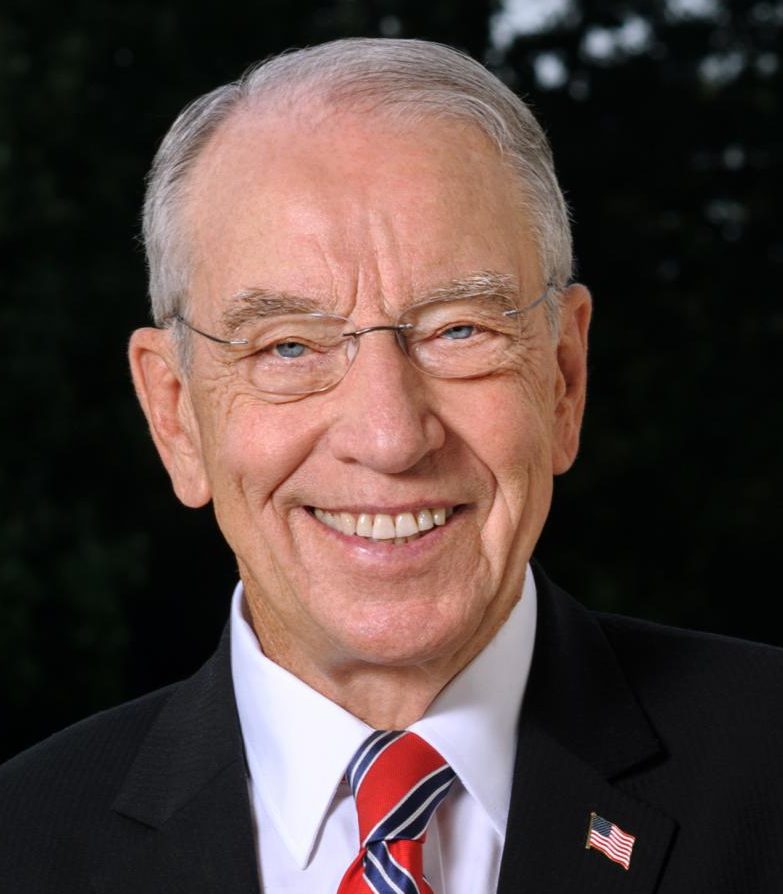Q: What’s your message to Iowans during National Donate Life month?
A: Thanks to modern medicine and the selfless generosity of fellow Americans, organ donation and transplantation have saved the lives of hundreds of thousands of beloved family members, friends and neighbors in recent decades. The miracles of modern medicine have given grandparents, moms, dads, siblings and cousins precious more time to make memories and make a difference during their time together on God’s green earth.
Even during the unprecedented uncertainty of a pandemic, loved ones and total strangers selflessly stepped up with the most generous gift they could give a fellow human being: the gift of life and a second chance at a better quality of life. According to federal statistics, more than 39,000 life-saving and life-enhancing organ transplants were performed in the United States last year. This remarkable milestone in the midst of a pandemic reflects the extraordinary generosity of Americans and the resilience of our health care professionals. What’s more, organ donation from deceased donors in the U.S. reached a historic high for the 10th year in a row – last year 12,587 individuals donated one or more organs to help others.
Although we’re moving in the right direction, supply and demand is starkly imbalanced. More than 107,000 people are waiting on the nation’s transplant list with one person added approximately every 10 minutes. The pediatric waiting list reflects dire circumstances for the nation’s youngest patients, with more than 1,900 children under age 18 who are waiting a life-saving organ transplant. Raising awareness builds hope.
For nearly two decades, patient advocates, health care providers, family members and organ recipients have observed the month of April as National Donate Life Month. Improving awareness and instilling confidence in the nation’s organ donation system will help narrow the gap for those on the waiting list with a potential match. I encourage people to consider this life-saving gift. Find out more at organdonor.gov.
Iowans may sign up to become a donor at the state’s registry Iowa Donor Network. This nonprofit organization manages organ, tissue, blood, marrow and eye donations for the state of Iowa. Many Iowans may know someone who has benefited from this precious gift of life. Consider young athletes who have returned to playing the sport they love thanks to donated ligaments, tendons or other tissues. People also may consider becoming a living donor to help a loved one or neighbor in need. Living donors may donate one of their own kidneys, or a segment of the liver, pancreas or lobe of a single lung to restore hope and gift a new lease on life. Those who have answered the call to donate are true heroes among us.
Q: What prompted your recent investigative oversight of the nation’s organ procurement system?
A: Congressional oversight is a top priority for me as a watchdog for good government. Through many years of tracking down wasteful spending and rooting out mismanagement, I’ve learned it takes the dogged mentality of a bloodhound to keep gnawing the bone of bureaucratic intransigence. When I get a whiff of wrongdoing, I keep my nose on the trail to flush out the facts. From mismanaged financial accounts at the Pentagon to secret patient wait lists at the Department of Veterans Affairs and questionable billing and debt collection practices by tax-exempt hospitals, I’ll keep asking questions and keep my thumb on a federal agency or nonprofit organization until I get answers.
Last year, for example, I launched a bipartisan probe into the work of the government contractor that is tasked by the executive branch with overseeing the entire organ procurement and transplantation system in the United States. This national system, formally known as the Organ Procurement and Transplantation Network (OPTN), was established by Congress in 1984 to ensure that our system of organ donation, recovery, and allocation functions efficiently. Since 1986, the non-profit United Network for Organ Sharing (UNOS) has contracted with the federal government to oversee the organ procurement organizations, or OPOs, that play a pivotal role in carrying out this work at the state and regional level. In recent years, independent audits have flagged questionable patient safety standards, misused taxpayer dollars and even tens of thousands of organs going unrecovered or transplanted among the nation’s 57 OPOs. These 57 entities effectively operate as regional monopolies with full control over all organ donations in their service area.
The lack of transparency in this system raises concerns for the 20 Americans who die each day waiting for a match. In my ongoing investigation with Sen. Ron Wyden, we’ve uncovered more troubling concerns about severe underperformance and improper use of Medicare funds. In February, we issued a subpoena to UNOS to get more information. We pushed for the Biden administration to implement much-needed reforms to the nation’s organ procurement system proposed by the Trump administration. With the lives of tens of thousands of loved ones hanging in the balance, it’s imperative that Congress gets answers to help fix what’s broken. Transparency brings accountability. And in the context of underperforming and mismanaged OPOs, strengthening public trust in our nation’s transplant system and narrowing disparities, particularly among communities of color, is a matter of life and death.
April is National Donate Life Month.
















